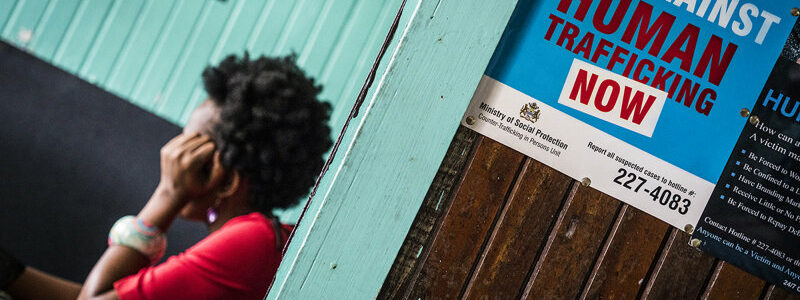
‘Exploit people for profit’: It’s time to step up the fight against modern slavery
Australia’s finance sector and superannuation funds need to lift their game to help stop modern slavery and human trafficking, says one of the world’s leading experts on sustainable investing.
“Forty million people in the world today [are under] some form of modern slavery or human trafficking,” said Fiona Reynolds, who recently returned home to Australia after nine years heading-the UN-supported Principles for Responsible Investment Corporation in London.
Seventy-one per cent of those affected are women and girls, and the problem continues to exist because we are “happy to exploit people for profit”, she told a responsible investing conference in Sydney this week. And a large part of the horrible practices are occurring in Australia’s own backyard, the Asia-Pacific region.
Australia’s super funds can do more to help stamp out modern slavery in the supply chains of the companies in which they invest. Credit:AP
That’s why big investors such as superannuation funds should “really drill into supply chains” and talk to the companies in which they are invested, said Reynolds, an expert on human rights, modern slavery and human trafficking issues whom Barron’s magazine named among the 20 most influential people in sustainability globally.
Reynolds, who also chaired the Financial Services Commission into Modern Slavery and Human Trafficking and was a member of the Finance Against Slavery and Trafficking Global Steering Committee, said that with human traffickers moving their money around the globe, the banking sector needs to ask more questions and demand evidence of where money is coming from.
“The [Australian] finance sector has a huge role to play in ending modern slavery and human trafficking,” she said.
‘The [Australian] finance sector has a huge role to play in ending modern slavery and human trafficking.’
The Commonwealth Modern Slavery Act was passed in 2018 and took effect in early 2019. Companies with annual revenue of more than $100 million, including the federal government, are required to document the risk of slavery in their supply chains.
They are accountable not just for their employees, but also for those who supply their suppliers. The law requires them to report publicly every 12 months on their actions to assess and address modern slavery risks.
A report released in February this year by corporate governance organisation Institutional Shareholder Services (ISS) and Monash University’s Centre for Financial Studies found the majority of Australia’s 300 largest listed companies gave statements for the 2020 financial year that did not extend to their indirect suppliers, where the risk of exploitative labour is high.
The report found that while the modern slavery statements generally provided details on direct suppliers, almost 60 per cent of statements did not provide clear information on whether the supply chain disclosure extended beyond companies’ direct suppliers.
Among the 300 companies covered in the report, just six of Australia’s largest companies listed on the Australian Securities Exchange demonstrated best practice in their modern slavery disclosures, the report said.
The Business Briefing newsletter delivers major stories, exclusive coverage and expert opinion. Sign up to get it every weekday morning.
Most Viewed in Money
From our partners
Source: Read Full Article
